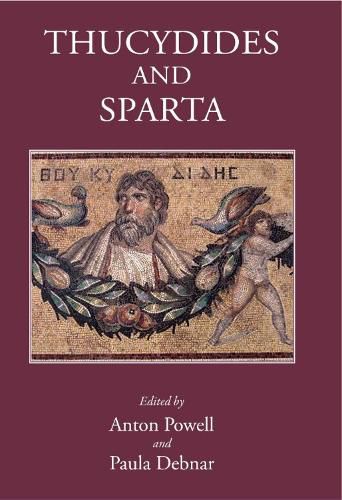Readings Newsletter
Become a Readings Member to make your shopping experience even easier.
Sign in or sign up for free!
You’re not far away from qualifying for FREE standard shipping within Australia
You’ve qualified for FREE standard shipping within Australia
The cart is loading…






Thucydides is widely seen as the most dispassionate and reliable contemporary source for the history of classical Sparta. But, compared with partisan authors such as Xenophon and Plutarch, his information on the subject is more scattered and implicit. Scholars in recent decades have made progress in teasing out the sense of Thucydides’ often lapidary remarks on Sparta. This book takes the process further. Its eight new studies by international specialists aim to reveal coherent structures both in Thucydidean thought and in Spartan reality.
This volume is the second of a series in which the Classical Press of Wales applies to Spartan history the approach it is already using for the history of Rome’s revolutionary era: focusing in turn on each of the main sources on which historians depend, and analysing with a combination of historical and literary methods.
$9.00 standard shipping within Australia
FREE standard shipping within Australia for orders over $100.00
Express & International shipping calculated at checkout
Thucydides is widely seen as the most dispassionate and reliable contemporary source for the history of classical Sparta. But, compared with partisan authors such as Xenophon and Plutarch, his information on the subject is more scattered and implicit. Scholars in recent decades have made progress in teasing out the sense of Thucydides’ often lapidary remarks on Sparta. This book takes the process further. Its eight new studies by international specialists aim to reveal coherent structures both in Thucydidean thought and in Spartan reality.
This volume is the second of a series in which the Classical Press of Wales applies to Spartan history the approach it is already using for the history of Rome’s revolutionary era: focusing in turn on each of the main sources on which historians depend, and analysing with a combination of historical and literary methods.